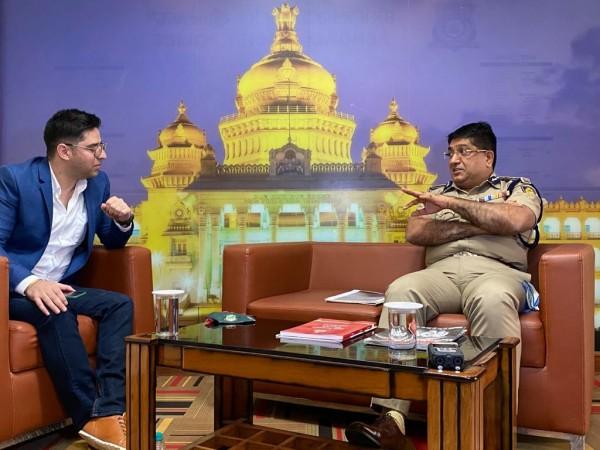In the latest episode of The Talk, Bengaluru Commissioner of Police Bhaskar Rao, IPS opened up about various challenges the police faced during the COVID-19 lockdowns and also addressed some controversies surrounding him among other vital topics.
India has been battling the COVID-19 pandemic and various efforts have been taken to contain the spread of the virus since late-March. From imposing nationwide lockdowns and closing down borders to making sure people's needs are met while they are indoors, the government had a lot to handle. But the front-line officers of the police have amped up their efforts to make sure the challenges are met in a smooth and peaceful fashion.
Putting the world's largest democracy under lockdown is not an easy task. But the police force of respective cities made it all possible. Amidst all the chaos, the Bengaluru city police emerged as effective and friendly police, even during these testing times. And it is their continued commitment and service that made it possible for the city to survive the toughest times and it lies on their shoulders to make sure we sail through the crisis unscathed.
On these lines, International Business Times, India's Editorial Director Danish Manzoor sat down for an exclusive interview with Bengaluru Commissioner of Police Bhaskar Rao IPS, discussing various topics ranging from effective policing in the city during the lockdowns to controversies surrounding him - all during COVID-19 pandemic.

Watch the full interview at the end of this article
The Bengaluru Commissioner addressed the challenges the police faced and how the adopted friendly policing methods to tackle even the trickiest situations. But the interview took various twists when Bhaskar Rao addressed the controversies surrounding him, when he had to suspend his officers on bribery charges, tackling the migrant crisis in the city, tending to people's needs during the lockdown and more.
Excerpts from The Talk
Speaking on the challenges faced by the police during the lockdown, Rao said that "biggest challenge was to maintain a balance between successful lockdown as well as allowing people to perform essential duties. The city is spread over a thousand sq. kms. and about 111 police stations cater to this operation. Enforcing anything is an unpleasant task. Lockdown means staying indoors, and attending to people's emergencies (including all medical needs) came down to us. We had to be friendly police."

The commissioner also spoke about the migrant crisis that has shocked the nation. Bengaluru was no stranger to the migrant issue, but there were necessary steps taken in a timely manner to address it. "Every deputy commissioner mapped out how many migrants in the respective jurisdiction. We had an officer to attend these migrants at least once a day to see how they are doing." When the government allowed plying of special trains for migrants, each of the deputy commissioners was tasked with arranging migrants' safe boarding.
Rao also opened up about two controversies he was a part of during the crisis. One of the controversies was that Rao had converted to Christianity after his visit to a church. But Rao cleared the air on that. He said: "I have not only been to a church, but I have also been to a temple, I have been to a mosque several times, I have visited Gurudwaras. As a commissioner of police, it is my duty to meet each and every person in all communities."
The commissioner also addressed various other topics on ensuring the safety of police officers in the field, the violence that erupted in Padarayanapura, and finally he ended the interview with a message to the people of the city. He also wished Bengaluru became "greener" and there's a discipline on the roads.
Watch our full interview with Commissioner Rao IPS below:
We would also like to thank Bengaluru City Police and the commissioner for their exceptional service towards the people of the city, even during these testing times.

















